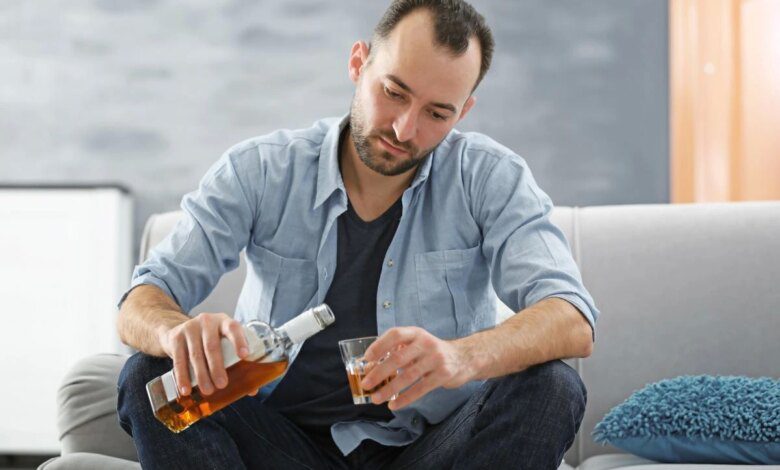
How to help someone addicted to alcohol
Helping an addicted person requires your very emotional balance, which is difficult to disturb, because such a problem of a loved one affects you directly.
The first step to being helpful is to maintain balance and not take responsibility for the person's healing. Of course, from the vantage point of being a witness to vice, you may observe the routine of drinking glass after glass, or you may observe the consequences of drunkenness and feel hopeless or helpless because you cannot break these habits.
Addiction psychiatrist Dr. Akhil Anand of the Cleveland Clinic advises you not to beat yourself up by thinking about what you can't do about that person's addiction: "Caring for someone with an alcohol addiction may cause suffering, anxiety, and sleepless nights, but you won't is responsible for what someone else does, so it is not normal for you to bear that burden,” says Dr. Anand.
Being around someone who is addicted to alcohol can bring a lot of stress into your life. Many emotions, such as disappointment, sadness, bitterness and anxiety, can affect your quality of life.
At no point in your relationship with an alcoholic should you forget to take care of yourself. That's why it's important to talk to loved ones, find online support groups, and call addiction specialists or doctors when you're overwhelmed by potentially dangerous feelings and conditions. These people can explain to you in detail and from different perspectives what addiction means and what your role may be in this sad context if you decide to stay with the addicted person.
The content of the article
Don't feed her addiction by taking responsibility.
When someone drinks too much and suffers frequent hangovers, they rely on their loved ones to resolve things that their addiction and the symptoms that accompany drunkenness make them no longer able to do. Many loved ones of addicts perform daily tasks that need to be done for them. “This is not help, but behavior that sends the wrong message because addicts no longer have the ability to feel and see the consequences of alcohol addiction,” explains Dr. Anand.
The specialist calls not to correct or collect traces of drunkenness, but to allow the drug addict to face their consequences: boxes and bottles are scattered on the floor, all this must be dealt with by the one who made them. “It is not your job to erase traces of addictive behavior so that the person avoids any embarrassment,” says Dr. Anand.
Don't discuss what's important to you
It's natural to want someone you care about to stop drinking. Therefore, if an addicted person tries to negotiate with you about alcohol consumption, saying, for example, that a change will happen from tomorrow, and today you need to find an understanding of the addiction that he shows, you should not fall into the trap. . What you need to look for is concrete evidence that the person is taking action and taking concrete steps toward healing.
Set realistic expectations
If someone you love is taking steps toward rehab, that's a good reason to be happy, but you should know that addictions have a high relapse rate and that they are common among those who do not seek addiction treatment but try to find a way out. get rid of addiction on your own. Experts say addictions are disorders of the brain, so they are not easily resolved, and vulnerable people may fall back into old habits even if they don't want to and are actively struggling with addiction.
“It may take 10 or more treatment attempts before someone makes progress in overcoming addiction,” says Dr. Anand.
Give unconditional love
No one can cope with addiction. But a good way to succeed is to remind yourself that you are dealing with a person's illness, and that illness is testing your patience and your feelings, not the person you love.
For addicts, like for any sick person, it is important to receive unconditional love and be there for them, but without forgetting about yourself. If the situation requires it, protect yourself and do not expose yourself to violence.
swell
Statistics show that a drunk person is 5 times more likely to commit violence than a sober person.














